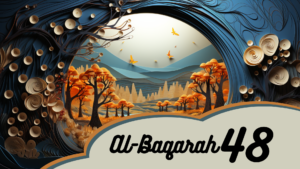In our article, we explore the significance and application of Verse 111 of Surah Al-Baqarah in the daily lives of Muslims. Providing a detailed explanation of this verse, we aim to shed light on its deeper meaning and its relevance to the practice of Islam. By examining the context of this verse within Surah Al-Baqarah, we hope to unveil its profound message and offer insights into how it can guide and inspire believers in their spiritual journey.
Verse 111 of Surah Al-Baqarah
Surah Al-Baqarah is the second chapter of the Holy Quran, and it consists of 286 verses. Each verse in this chapter carries profound wisdom and guidance for Muslims. Verse 111 of Surah Al-Baqarah holds particular significance and is worthy of detailed exploration. In this article, we will delve into the context, translation, meaning, and interpretation of this verse, as well as its implications for Islamic theology and its application in our daily lives as Muslims.
Context of the Verse
To truly understand the context of verse 111 of Surah Al-Baqarah, we must examine its surrounding verses. In the previous verses, Allah describes the Children of Israel and the covenant He made with them. Despite this covenant, the Israelites deviated from their path and incurred His wrath. Verse 110 mentions that the nation, unlike their forefather Abraham, divided into sects after receiving knowledge.
Translation of the Verse
The translation of verse 111 of Surah Al-Baqarah reads as follows: “And they say, ‘None will enter Paradise except one who is a Jew or a Christian.’ That is [merely] their wishful thinking, Say, ‘Produce your proof, if you should be truthful.'”
Meaning and Interpretation
This verse addresses a prevalent misconception among the Jews and Christians of that time, and it still holds relevance in today’s world. There were those who believed that only Jews or Christians would enter Paradise, excluding all others. Allah refutes this false belief and challenges them to offer evidence to support their claims.
The verse points out that Allah’s mercy and judgment do not discriminate based on religion or lineage. It emphasizes that salvation is not exclusively reserved for a particular group; rather, it is open to anyone who attains righteousness and fulfills their obligations to Allah. It serves as a reminder that one’s actions and faith are what truly matter, rather than external labels or affiliations.
Significance in Islamic Theology
Verse 111 of Surah Al-Baqarah has great significance in Islamic theology. It reinforces the principle of justice and fairness in the eyes of Allah. Islam teaches that all individuals will be judged based on their beliefs and actions, regardless of their religious background. This verse highlights the universality of Islam, which welcomes anyone who submits to Allah’s will and lives a righteous life.
By debunking the notion of exclusive salvation based on religious identity, this verse upholds the core values of Islam, promoting inclusivity, equality, and unity among believers. It stresses the importance of sincerity in faith and righteous deeds over superficial affiliations and sectarian divisions.
Comparison with Previous Scriptures
The monotheistic religions preceding Islam also contain teachings about divine judgment and salvation. However, verse 111 of Surah Al-Baqarah raises an important point of distinction. While some followers of Judaism and Christianity held the belief that only individuals from their respective faiths would enter Paradise, the Quran challenges this notion and presents a broader understanding of salvation.
Islam, as the final revelation, builds upon the message of previous scriptures, affirming the Oneness of Allah and emphasizing the significance of a sincere relationship with Him. It broadens the scope of salvation, emphasizing that it is open to all who worship Allah alone, believe in His messengers, and lead a righteous life.
Implications for Muslims
Verse 111 of Surah Al-Baqarah has several implications for Muslims. Firstly, it serves as a reminder to avoid falling into the trap of exclusivity and division within the Muslim community. Just as Allah rejects the notion of exclusive salvation based on religious identity, Muslims should embrace unity among themselves and recognize the diversity within their own ranks.
This verse also encourages Muslims to engage in dialogue with people of other faiths, correcting misunderstandings and dispelling false beliefs. By inviting others to produce evidence to support their claims, as mentioned in the verse, Muslims can promote a healthy exchange of ideas and foster mutual understanding.
Application in Daily Lives
The teachings of Surah Al-Baqarah, including verse 111, transcend the boundaries of time and find practical application in the lives of Muslims today. Understanding the broader concept of salvation and the inclusive nature of Islam helps shape a Muslim’s worldview and interactions with others.
In our daily lives, we can apply the principles of verse 111 by embracing diversity and inclusivity, treating individuals from different religious backgrounds with respect and kindness. We should strive to embody the principles of Islam through good character, offering a positive and inviting example for others to witness.
Relation to Faith and Practices
Verse 111 of Surah Al-Baqarah has a direct correlation with the faith and practices of Muslims. It reinforces the Islamic belief in the Day of Judgment, where all individuals will be held accountable for their actions. This understanding fuels a Muslim’s commitment to righteousness, as they believe their actions in this world will determine their final destination.
The verse also emphasizes the importance of knowledge and evidence-based beliefs. Muslims should seek knowledge to strengthen their own understanding of Islam and effectively communicate its teachings to others. It encourages critical thinking and intellectual engagement as Muslims strive to uphold the principles of their faith.
Guidance for Muslims
As Muslims, we can find guidance in verse 111 of Surah Al-Baqarah in several aspects of our lives.
- Promoting inclusivity: We should actively work to break down barriers and promote inclusivity within the Muslim community and beyond. By recognizing the diversity of beliefs and cultural backgrounds among Muslims, we can foster unity and harmony among ourselves.
- Engaging in interfaith dialogue: Verse 111 encourages Muslims to engage in respectful dialogue with people of other faiths, debunking misconceptions and sharing the principles of Islam. By doing so, we can build bridges of understanding and appreciation among different religious communities.
- Focusing on righteous actions: This verse reminds us that our actions and faith are more important than external labels. As Muslims, we should prioritize fulfilling our obligations to Allah and living a righteous life, recognizing that true salvation lies in aligning our actions with our beliefs.
Summary of the Verse
Verse 111 of Surah Al-Baqarah serves as a powerful reminder of the inclusive nature of Islam and its rejection of exclusive salvation based on religious identity. It challenges the misconception that only Jews or Christians will enter Paradise and calls for evidence to support such claims. The verse holds great significance in Islamic theology, emphasizing justice, fairness, and the universality of Islam. It invites Muslims to embrace diversity, engage in dialogue, and prioritize righteous actions. By understanding and applying the teachings of this verse, Muslims can strive towards a more tolerant and inclusive society, fostering unity and harmony among believers and non-believers alike.




